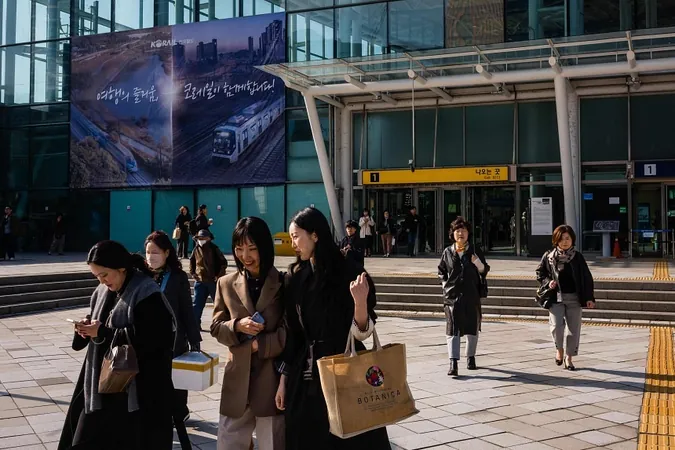
Wealthy South Korean Parents Resort to 'Citizenship Shopping' for International School Access
2024-11-24
Author: Mei
Introduction
In a surprising new trend, affluent South Korean parents are pursuing citizenship in Vanuatu, a stunning archipelago in the South Pacific, not for its natural beauty, but for a more pressing reason: to meet the requirements for enrolling their children in international schools.
A Personal Story
Take the story of Ms. Bae, a 30-year-old housewife from Seocho-gu in southern Seoul. She is considering obtaining Vanuatu citizenship specifically to ensure her 4-year-old son can access international education. "My son is currently in an English immersion kindergarten," she explains. "I want him to attend international schools in Korea, which offer a multicultural environment and a robust English curriculum."
Barriers to Admission
Currently, children with Korean nationality face significant barriers to admission in prestigious international schools like Yongsan International School of Seoul and Seoul Foreign School. The rules are strict: a Korean child can only enroll if at least one parent holds foreign nationality or if they have lived abroad for three years. As a result, many wealthy parents are turning to overseas immigration agencies to help them navigate these restrictions.
Citizenship by Investment Programs
These agencies facilitate the process by offering "citizenship by investment" programs in various countries, particularly the Caribbean and Pacific nations. The most popular option among South Koreans is Vanuatu, where securing citizenship can be achieved through a financial contribution. According to Mr. Cho, a director of an immigration consulting firm, applicants can expect to pay around US$130,000 for an individual, US$150,000 for a couple, or US$180,000 for a family of four.
The Allure of Vanuatu
The appeal of Vanuatu extends beyond the initial investment. The citizenship application process is relatively quick, taking only three to six months, and there is no mandatory residence requirement—making it an attractive option for busy parents eager to secure educational opportunities for their children.
Increasing Competition in Education
Moreover, as international education becomes increasingly competitive in South Korea, parents are finding that quick and unconventional solutions become necessary. The pressure to provide children with better schooling options, particularly in English, only intensifies, pushing parents like Ms. Bae to expedite their applications.
Future Implications
With new regulations regarding passport issuance expected in December, urgency has spiked. Mr. Cho advises potential applicants to act swiftly if they wish to take advantage of the current regulations before changes take effect.
Conclusion
As the globalization of education continues, South Korean parents may increasingly turn to 'citizenship shopping' as a viable pathway to ensure the best opportunities for the next generation. Will this trend reshape the educational landscape in South Korea? Only time will tell.





 Brasil (PT)
Brasil (PT)
 Canada (EN)
Canada (EN)
 Chile (ES)
Chile (ES)
 España (ES)
España (ES)
 France (FR)
France (FR)
 Hong Kong (EN)
Hong Kong (EN)
 Italia (IT)
Italia (IT)
 日本 (JA)
日本 (JA)
 Magyarország (HU)
Magyarország (HU)
 Norge (NO)
Norge (NO)
 Polska (PL)
Polska (PL)
 Schweiz (DE)
Schweiz (DE)
 Singapore (EN)
Singapore (EN)
 Sverige (SV)
Sverige (SV)
 Suomi (FI)
Suomi (FI)
 Türkiye (TR)
Türkiye (TR)